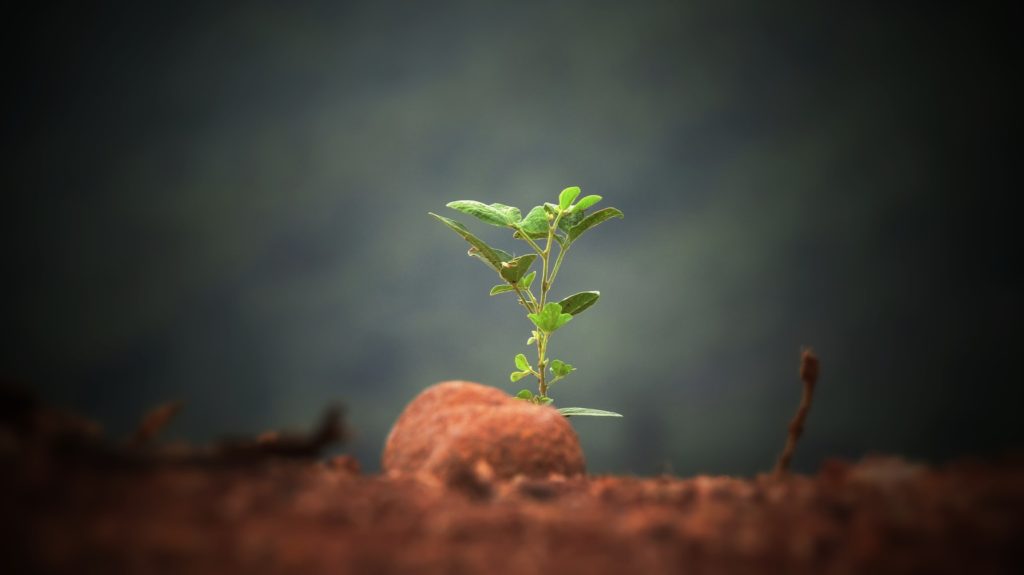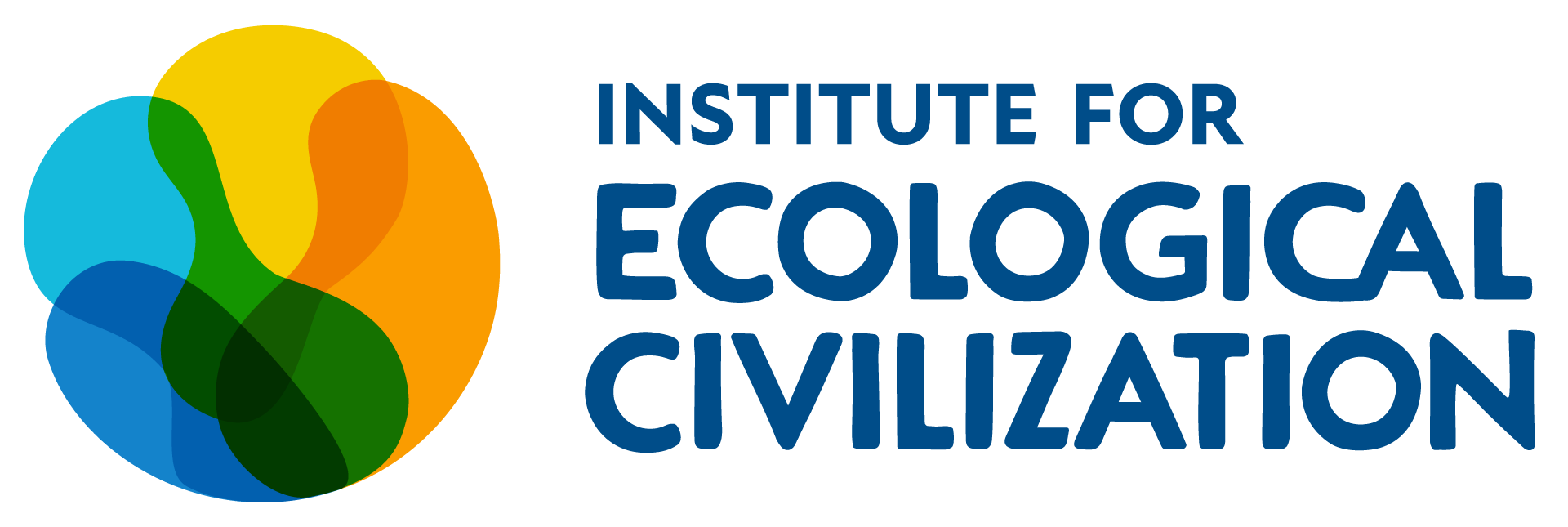Ecological Civilization Studies: An Emerging Transformative Discipline

By Philip Clayton and Megan Anderson
Ecological Civilization Studies (ECS) seeks to build an informed vision for a sustainable and just future. It involves rigorous research into ways of living that are not sustainable, as well as the study of new (and ancient!) ways of living that are models for the future. In ECS, the research is combined with practical steps to move humanity forward toward this vision, always concentrating on solutions that are viable for the long-term. It is about changing the way we live in relationship to our surrounding ecosystems rather than simply creating solutions to mitigate the damage that humans have wrought and continue to wreak on the environment.
The idea of an ecological civilization is much broader and more comprehensive than simply combining civilizational studies with ecology. We focus less on the past (although “those who cannot remember the past are condemned to repeat it”), and more on what human civilization will need to look like in the future. Virtually every area of human society is included: ecology, economics, social and political structures, arts, philosophy, religion, human/animal/plant thriving, energy, culture, etc. Because Ecological Civilization Studies lies at the intersection of theory and practice, students are asked to think about real-world situations and brainstorm ideas about how they can be addressed.
Crucial for EcoCiv is a multi-sector approach. It’s impossible to create genuinely sustainable solutions in the amount of time we have available if we create them in sector silos. Consider some examples:
- How we think about the solution to humanity’s current reliance on fossil fuels requires thinking about the structure of cities and how they relate to sub-urban environments and to the surrounding agricultural districts: is this whole model even sustainable?
- Similarly, pursuing solar, wind, and water power requires a deep understanding of how ecosystems work, so that we can develop renewable energy sources in ways that disrupt these environments as little as possible. For example, while the solar fields near Las Vegas create a great deal of solar energy, the energy not absorbed by the panels, being released as heat back into the atmosphere, is literally frying birds as they fly over.
- Any solution to the escalating water crisis must involve thinking about agricultural practices: how can we use water more efficiently in growing food? How do we cultivate soil that retains water better? How can we integrate crops that mutually support each other and reduce the amount of water needed? We also need to think about cultural issues surrounding water, for example the difficulty of keeping girls in school in many parts of the world because they are forced to walk miles to find water every day.
The key idea here is radical interdependence. We live in a globalized world, which means that everything we do has an effect on other parts of the world. There is no such thing as living in isolation anymore; human choices and behavior today determine the kind of planet our children’s children will inhabit. In one sense, this has always been true. But because climate change involves escalating feedback loops, and because we live today at a tipping point in the earth’s history, today’s choices are absolutely decisive for future generations.
ECS seeks to transform students’ lives in both thought and action. It addresses the urgency of now. We are treating the environmental crisis for what it is: a crisis that requires immediate action aimed at changing the way humans live on the face of this planet. That means that we turn vague dreams of a sustainable society into concrete roadmaps for societal transformation. We bring in speakers to educate students about solutions that are already in the works. The goal is for students to develop projects that will serve as stepping-stones toward achieving an ecological civilization.
Ecological Civilization Studies in Practice
The first course in Ecological Civilization Studies will be offered this fall at the joint institutions Claremont School of Theology and Willamette University. It will consist of seven sections, each aiming to increase the students’ capacity first to understand the complexity of the crises we face, and then to develop action plans (“roadmaps”) that lead to long-term sustainable solutions.
Foundations of Ecological Civilization
The opening portion of this class will dig deep into to what an ecological civilization is in its essence. What questions does it require we ask? What principles are as its foundation? How is it different than a sustainable society? How does it give us concrete hope for the future? Students will be asked to reflect on these questions and provide their own thoughts and questions. They will explore what it means to be an ecological civilization – providing their own ideas as well – so they can use this as a base for constructive analysis going forward.
What is Not Possible – Natural Science Limitations
This section will highlight the gravity of the ecological crisis, our trajectory, and ecological and technological limitations when it comes to identifying possible solutions to give students a framework to critically analyze the path forward and any solutions presented by governments and organizations. If an inherent value of an ecological civilization is to live harmoniously with nature, it becomes imperative to consider what we are unable to do in light of ecological limitations. Otherwise we will follow in the footprints of the past, creating solutions that are short-sighted and continuing to cause ecological destruction.
What is Not Possible – Social Science Consequences
It is clear the path forward that is not possible is living as we have been – living lives wracked by capitalism, consumerism, and throw-away-ism, and dependent on fossil fuels and systems that oppress the majority of people on the planet. If we continue on this path, we will see a sociological extinction – people in the lower 90% of the global income bracket will be wiped out due to a lack of the basic resources they need to survive. In this section, students will be presented with some of the humanitarian crises that are already occurring and asked to think about how these issues across the globe are connected and how this impacts the way we approach generating solutions.
What Is Possible – Breakthrough Technologies
Although technology alone will not be enough to solve the environmental crisis, there are some amazing things being created that will help move in the right direction. Increasingly efficient solar panels and storage units to hold renewably generated energy; mechanisms that collect trash from our water bodies; biodegradable alternatives to plastic. There are also many “technologies” present in nature in the very way it adapts to varying environments, and we will do well to learn from her. This section of the course will invite students to evaluate available and emerging technologies with the vision of an ecological civilization in mind. What does technology look like in an ecological civilization? When does technology become too much? What kinds of earth-friendly technologies will we need if cities are to be genuinely sustainable within 30 years? What natural “technologies” can we integrate into our societies? These are some of the questions students will be asked to think about.
What Is Possible – New Ways of Living
If society needs to radically change, what does this new way of living look like? We capture glimpses of an ecological civilization in indigenous traditions, ecovillages, communities striving to divest from capitalism and consumerism, the zero-waste movement, “degrowth economics,” and cities taking serious measures to create sustainable systems for the long-term. What is needed is a way to bring these glimpses together into a cohesive whole, and one that can be adapted to fit the needs of different bioregions and cultures. In this part of the course, students will grapple with what living in an ecological civilization means, what systemic changes are necessary, and what it will take to implement them in the face of social, political, and psychological roadblocks.
The Backcasting Method – Single and Multisector
Backcasting is one of EcoCiv’s core methods. Backcasting is like forecasting, except from the future back toward the present. As we paint a clearer picture of the future we want to live in, our goals for actions that can be taken today get sharper. With a good sense of our goals, and of the long-term outcomes we seek, we can begin to construct roadmaps ― sector by sector, and across sectors of society ― that will guide policies and investments into the future.
So many of government and business “solutions” to the environmental crisis in the past have been short-sited. We need to focus not only on solutions to immediate needs, but on steps that really lead to viable long-term solutions. Plans on this scale must be inherently collaborative and produced through the efforts of multiple stakeholders both across the various sectors of society and within particular sectors and communities. During this section of the course, students will learn how to use the backcasting method and be asked to apply it to single-sector and multi-sector situations.
Real-World Projects
Given the urgency of the crisis we face, it is not sufficient to ask students to think about merely theoretical situations. Therefore, we will present students with real-world problems and ask them to design outlines for a program, project, or event that uses the backcasting method and applies the principles they’ve learned during the semester.
We are excited to develop what we believe is a discipline that could really help transform the relationship between humans and the natural world. Keep a lookout as we continue to share our progress in the coming months.
